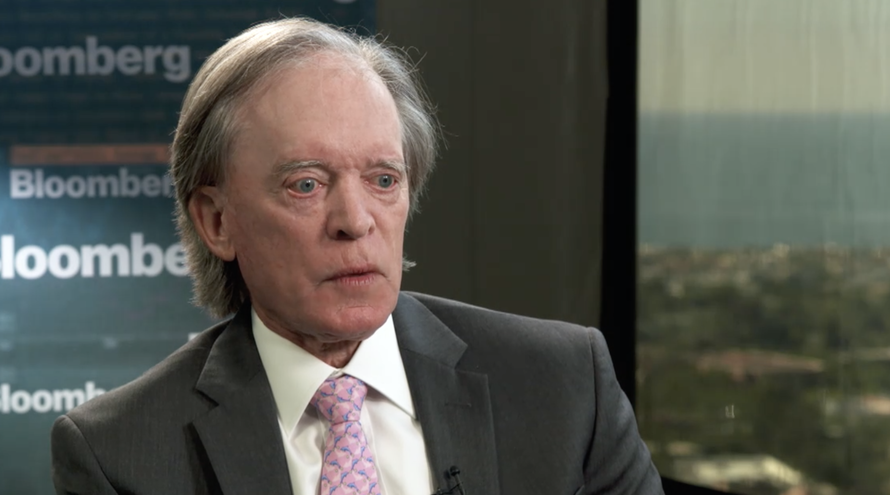Amid the barrage of shocking revelations from an interview with Bloomberg News last week, Bill Gross’s comment about how he doesn’t expect another ‘bond king’ to succeed him upon his retirement was probably easy to overlook.
To be fair, some would argue that there already is another ‘bond king’ (DoubleLine Capital’s Jeffrey Gundlach is often cited as an heir to Gross’s title). But in the second part of the legendary bond investor and Pimco founder’s interview, he offered a more complete explanation of what he meant by this.
Since quantitative traders came to dominate financial markets, there have been fewer opportunities for their human rivals to generate alpha, Gross said. As algos became more efficient at eliminating arbitrage opportunities, picking up what Gross called “structural alpha” – something that once allowed savvy bond traders to easily beat their benchmarks by 30 or 40 basis points – has become much more difficult.
“There are things to look at that still exist in the market that can generate alpha, although the probabilities of generating historical alpha in the same way are much less than they were,” Gross, who retired on March 1 after a 48-year career in financial markets, said in an interview with Bloomberg Television in Newport Beach, California.
The culprits are many. Gross, 74, recounted how, during much of his four decades at Pacific Investment Management Co., investors could, and without any “brilliance,” make 30 to 40 basis points, or 0.3 to 0.4 percent, of “structural alpha” a year just by holding a bond as it rolled down to shorter maturities. Now, yields are much lower and the spreads between Treasuries of different maturities are razor thin. With quantitative easing and zero and negative interest rate policies, central banks “changed the nature of the game,” Gross said.
It has become much more difficult to capitalize on mispricings and deviations between cash and futures markets.
It’s also harder to find mispricings. Gross says he used to pounce when banks introduced new credit products because they inevitably were poorly understood and traded at discounts to intrinsic value. The first few years of mortgage bonds in the 1970s are an example.
“Investors basically wouldn’t touch them,” he said. “Our accounting department, they didn’t know how to segregate the principal and the interest, and there were complaints aplenty. I said, ‘Come on, get over it!’ because these things were so cheap. We got in early.”
Timid banks are also contributing to the paucity of opportunity, Gross said, because, since the financial crisis, they have been hesitant to produce new products to trade (no more synthetic CDOs or other complex derivative that could offer traders outsize returns…until the music stops).
Now, those opportunities are mostly gone, in part because of the advent of computer-driven systematic strategies that eliminate mispricings much faster. And banks, subject to more scrutiny and regulation since the financial crisis, aren’t creating many new instruments to trade.
“Markets are highly developed from the standpoint of a menu of either real or derivative types of products,” Gross said. “We’ve gone about as far as we can.”
Gross has felt the pain himself. It started while he was still running the Pimco Total Return Fund. Thanks to bad bets on monetary policy, Gross trailed most of his peers in 2011 and 2013. Clients started to pull money. Gross feuded with his partners and left the following year.
At his new firm, Janus Henderson Group Plc, Gross switched from pursuing relative return against a benchmark to a so-called unconstrained strategy with a very different objective: absolute return, or positive results no matter the market conditions. Instead of an index, Gross’s bogey was essentially cash.
Another thing: After a three-decade bull market, bond yields are so low around the world that it’s difficult for active managers to justify 150 basis points in fees. That’s no longer the case.
Then again, this could all be a case of sour grapes after Gross’s abysmal performance since joining Janus Henderson in 2014 prompted a wave of redemptions last year that many believe helped inspire him to retire. After all, as Gross has said, he’s already won his fair share of “Super Bowl” rings.
Watch a clip from the interview below:
via ZeroHedge News https://ift.tt/2Twi7BA Tyler Durden
